Hinduism is one of the oldest religions in the world, with over a billion followers worldwide. While it has its roots in the Indian subcontinent, it is a global religion with followers living in different parts of the world, including the United Arab Emirates (UAE). The Hindu community in the UAE is a vibrant and thriving one, and one of the most important aspects of their spiritual life is the presence of Hindu temples. In this article, we will explore the history of Hindu temples in the UAE, their significance for the community, and the role they play in promoting interfaith harmony. We will also discuss the services and activities offered by these temples, as well as their future in the UAE.
A brief overview of the Hindu community in UAE
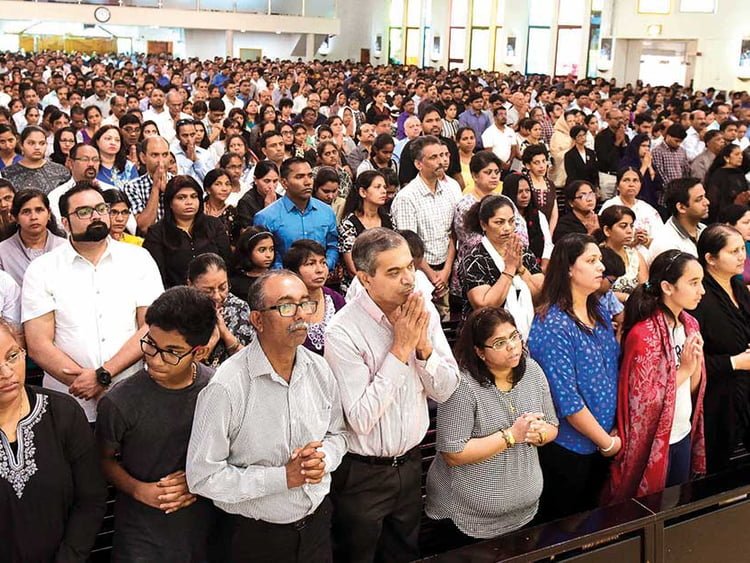
The Hindu community in the United Arab Emirates (UAE) is a significant minority group, with estimates suggesting that they make up approximately 12% of the country’s population. Many members of the community are expatriates who have migrated to the UAE for work or business purposes. The community is diverse, with members hailing from various parts of India, Nepal, Sri Lanka, and other countries. Despite being a minority group, the Hindu community has a strong presence in the UAE and has made significant contributions to the country’s economic and cultural development. The community is known for its vibrant festivals, colorful traditions, and devotion to the Hindu faith.
Importance of Hindu temples for the community
Hindu temples hold a significant place in the spiritual and cultural life of the Hindu community in the UAE. They are not just places of worship but serve as community centers where members of the community can come together to connect with one another and their spiritual roots. The following are some of the key reasons why Hindu temples are important for the community in the UAE:
- Preservation of cultural and spiritual traditions: Hindu temples in the UAE play a crucial role in preserving the cultural and spiritual traditions of the community. These temples are places where members of the community can come together to participate in rituals, ceremonies, and festivals that are an integral part of the Hindu faith. They provide a space where these traditions can be passed down to future generations and ensure that the community’s cultural heritage is preserved.
- Fostering community spirit and unity: Hindu temples serve as a focal point for the community and provide a space where members can come together to socialize, share ideas, and build relationships. They create a sense of community and belonging that is essential for the well-being and growth of the community.
- Impact on social and emotional well-being: Hindu temples have a significant impact on the social and emotional well-being of the community. They provide a space where members can seek solace and find support during times of stress and uncertainty. They also serve as a source of inspiration and motivation, helping members of the community stay connected to their faith and find meaning in their lives.
History of Hindu Temples in UAE
The history of Hindu temples in the UAE can be traced back to the 1950s, when the first Hindu temple was established in Dubai. The temple was a small structure that was built to cater to the spiritual needs of the Hindu community, which was then made up of a handful of families.
Over the years, the Hindu community in the UAE grew, and with it came the demand for more temples. In the 1970s, a new temple was built in Dubai, and this was followed by the construction of other temples in different parts of the country. Today, there are several Hindu temples in the UAE, including the Shiva and Krishna temples in Dubai, the BAPS Swaminarayan Temple in Abu Dhabi, and the Santhana Gopala Krishna temple in Sharjah.
Establishing these temples in the UAE was not without its challenges. Initially, there were no laws or regulations in place to govern the construction and operation of religious institutions. The first temple was built on a private plot of land with the permission of the ruler of Dubai at the time. It was only in the 1980s that the government of the UAE began to recognize the need for laws and regulations to govern the establishment of religious institutions, including Hindu temples.
Despite the challenges, the Hindu community in the UAE continued to grow and prosper, and with it came the establishment of more temples. Today, these temples serve as important centers of worship, cultural exchange, and community building for the Hindu community in the UAE.
Overview of the first Hindu temple in UAE
The first Hindu temple in the UAE was established in the early 1950s in Dubai. It was a modest structure built on a private plot of land in Bur Dubai, an area then predominantly occupied by Indian expatriates.
The temple was constructed to cater to the spiritual needs of the small Hindu community in Dubai, which was then made up of a handful of families. The temple was initially a small building made of concrete and was dedicated to Lord Shiva, one of the most revered deities in the Hindu faith.
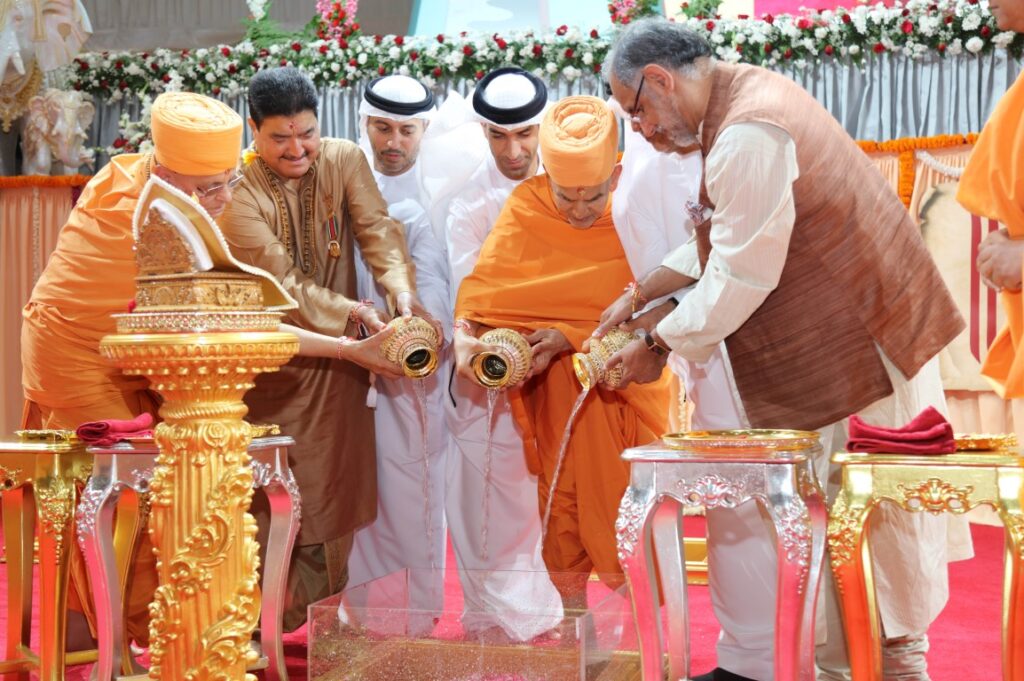
The temple was simple, with a single prayer room, a small kitchen, and a courtyard for outdoor ceremonies. It was staffed by a priest responsible for performing the daily rituals and ceremonies and a spiritual leader for the community.
Over the years, the temple grew in popularity, and more families joined the community. As a result, the temple underwent several renovations and expansions. In the 1970s, a new and larger temple was built in the same location, and the original temple was converted into a community center.
Today, the temple in Bur Dubai remains an important center of worship and cultural exchange for the Hindu community in the UAE. It serves as a reminder of the community’s roots and the challenges it has overcome to establish a thriving presence in the country.
Brief history of other Hindu temples in UAE
After the establishment of the first Hindu temple in Dubai, several other temples were constructed in different parts of the UAE to cater to the growing Hindu community. Here is a brief history of some of these temples:
- Shiva and Krishna Temple in Dubai: This temple was built in the 1970s and is located in the Bur Dubai area. It is one of the UAE’s largest and oldest Hindu temples and is dedicated to Lord Shiva and Lord Krishna.
- BAPS Swaminarayan Temple in Abu Dhabi: This temple was built in 2015 and is located in Abu Mureikha, Abu Dhabi. It is a modern and grand temple built in the traditional style of Indian architecture and is dedicated to Lord Swaminarayan.
- Santhana Gopala Krishna Temple in Sharjah: This temple was built in the 1990s and is located in the Al Ghubaiba area of Sharjah. It is a small and simple temple dedicated to Lord Krishna.
- Sree Narayana Guru Mandiram in Dubai: This temple was built in the 1980s and is located in the Satwa area of Dubai. It is dedicated to the great saint and social reformer, Sree Narayana Guru.
These temples, along with several others, serve as important centers of worship, cultural exchange, and community building for the Hindu community in the UAE.
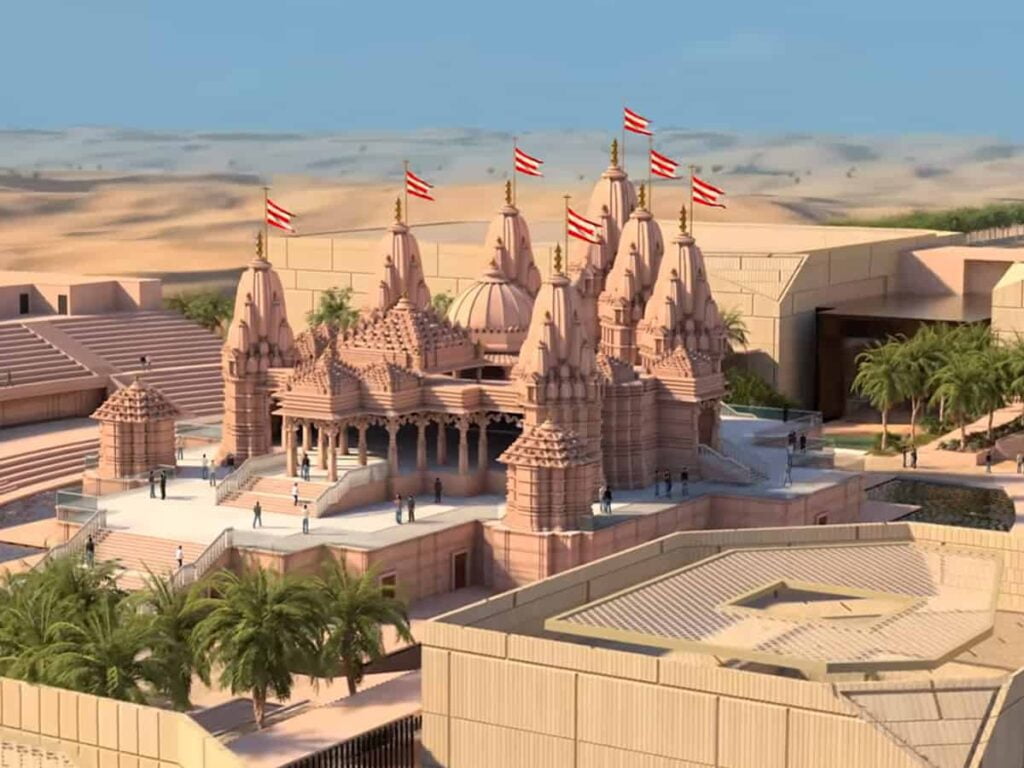
Challenges faced in establishing temples in the UAE
Establishing Hindu temples in the UAE was not without its challenges. Some of the main challenges faced by the community in establishing these temples include:
- Lack of land: Finding suitable land to build a temple was a major challenge faced by the Hindu community in the early days. The UAE was still in the early stages of development, and most of the land was reserved for commercial and residential use. The few available plots of land were expensive, and securing them for religious purposes was difficult.
- Regulations and laws: In the early days, no laws or regulations were in place to govern the construction and operation of religious institutions. As a result, the community faced several bureaucratic and administrative hurdles in getting the necessary approvals and permits to build the temples.
- Cultural and religious differences: The UAE is a Muslim country, and the cultural and religious differences between the Hindu community and the local population sometimes created tension. Some people were not comfortable with the idea of non-Muslim places of worship being built in the country.
- Financial constraints: Building and maintaining a temple requires significant financial resources. In the early days, the community was not financially strong, and raising the necessary funds to build and maintain the temples was difficult.
Despite these challenges, the Hindu community in the UAE persevered and established several temples over the years. The government of the UAE has also recognized the importance of religious institutions and has implemented laws and regulations to govern their construction and operation.
The Significance of Hindu Temples for the Community
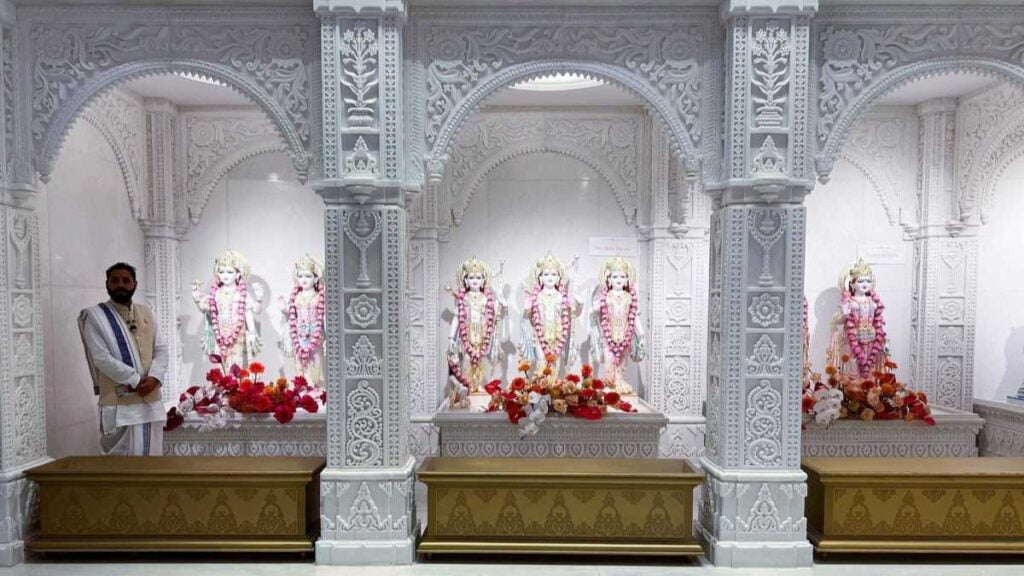
Hindu temples hold great significance for the Hindu community in the UAE. They are not only places of worship but also serve as cultural and social hubs for the community. Here are some of the key reasons why Hindu temples are important for the community:
- Spiritual center: Hindu temples provide a space for members of the community to come together and connect with their spiritual roots. They offer a peaceful and meditative environment where people can seek solace and find inner peace.
- Cultural exchange: Hindu temples serve as a platform for the exchange of cultural ideas and practices. They host a variety of events, including festivals, celebrations, and cultural programs that promote a greater understanding and appreciation of Hindu culture.
- Community building: Temples provide a space for members of the community to come together and build relationships. They are a place to meet and connect with like-minded individuals, make new friends, and strengthen existing bonds.
- Educational center: Hindu temples also offer classes and workshops on topics such as yoga, meditation, and Hindu philosophy. These classes provide an opportunity for members of the community to learn and deepen their understanding of Hinduism.
- Service center: Many temples also offer a range of community services, including food banks, health clinics, and youth programs. These services demonstrate the community’s commitment to serving others and positively impacting society.
Role of temples in preserving cultural and spiritual traditions
Hindu temples have played a critical role in preserving the cultural and spiritual traditions of the Hindu community in the UAE. Here are some of the ways in which temples have contributed to this important task:
- Rituals and ceremonies: Temples are places where rituals and ceremonies are performed. These rituals and ceremonies have been passed down through generations and are an important part of Hindu culture. By providing a space for these traditions to be continued, temples help preserve the community’s cultural and spiritual practices.
- Scriptures and teachings: Temples are also repositories of the Hindu scriptures and teachings. They provide a space for members of the community to learn about their religious traditions, to study the scriptures, and to deepen their understanding of Hindu philosophy.
- Festivals and celebrations: Temples are often the center of festivals and celebrations in the community. These festivals are an opportunity to celebrate and honor the community’s cultural and spiritual heritage. They provide an opportunity for members of the community to come together, connect, and share their traditions with others.
- Art and architecture: Temples are often beautiful works of art and architecture, with intricate carvings, colorful murals, and ornate sculptures. These works of art are not only aesthetically pleasing, but they also serve as a reflection of the community’s cultural and spiritual traditions. They physically manifest the community’s values, beliefs, and aspirations.
Importance of temples in fostering community spirit and unity
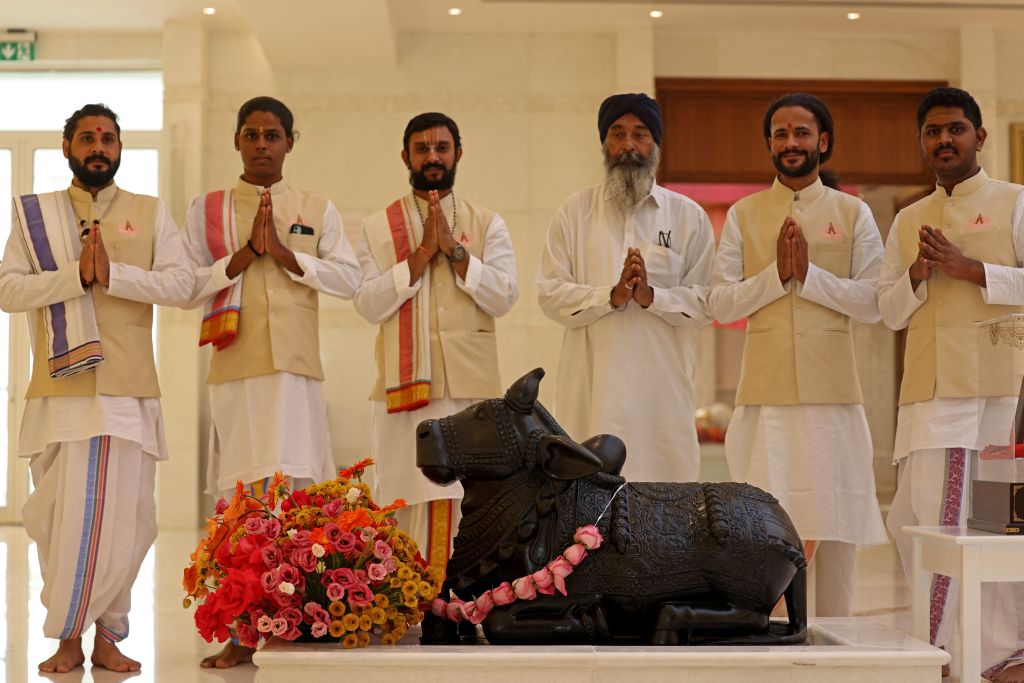
Hindu temples play a significant role in fostering community spirit and unity among the Hindu community in the UAE. Here are some of the ways in which temples promote a sense of community and belonging:
- Bringing people together: Temples provide a space where members of the community can come together to worship, celebrate, and socialize. This shared space creates a sense of community and fosters a sense of belonging among the community members.
- Celebrating festivals and traditions: Temples are often the center of festivals and celebrations, which are an essential part of the Hindu community’s cultural and spiritual traditions. These festivals provide an opportunity for members of the community to come together, share their traditions, and strengthen their bonds.
- Supporting community initiatives: Many temples support community initiatives such as food banks, youth programs, and educational initiatives. These initiatives bring community members together and provide opportunities to give back to the community.
- Offering guidance and support: Temples often have a team of priests and other leaders who guide and support the community. They offer spiritual guidance, counseling, and support to community members during difficult times, such as illness or bereavement.
- Providing a sense of identity: Temples serve as a physical reminder of the community’s presence in the UAE. They are a visible symbol of the community’s culture, values, and traditions, and they provide a sense of identity and pride to community members.
Hindu Temples and Interfaith Harmony in UAE
Hindu temples in the UAE also play an essential role in promoting interfaith harmony and understanding. Here are some of the ways in which temples contribute to interfaith harmony:
- Hosting interfaith events: Temples often host interfaith events, such as interfaith dialogues, prayer services, and cultural events. These events provide an opportunity for members of different faith communities to come together, learn about each other’s traditions, and build relationships based on mutual respect and understanding.
- Promoting respect for diversity: Temples promote respect for diversity by creating an inclusive environment where people from different backgrounds and cultures can come together. This creates a sense of openness and acceptance that is essential for building interfaith relationships.
- Engaging in community service: Many temples engage in community service projects that benefit people of all faiths. This demonstrates the temple’s commitment to serving the wider community and fosters a spirit of cooperation and collaboration with other faith communities.
- Encouraging dialogue and understanding: Temples provide a space for dialogue and understanding between members of different faith communities. Through interfaith events, educational programs, and other initiatives, temples encourage dialogue and understanding, which can help to break down barriers and build bridges of friendship and cooperation.
- Supporting peace and justice: Temples promote peace and justice by advocating for the rights and well-being of all people, regardless of their faith or background. This commitment to social justice is important to building interfaith relationships and promoting a more just and peaceful society.
Significance of Hindu temples as a symbol of the UAE’s commitment to diversity and inclusion
Hindu temples in the UAE are not just important for the Hindu community but are also a symbol of the UAE’s commitment to diversity and inclusion. The UAE has a long history of welcoming people from different cultures and backgrounds and creating a society that is based on mutual respect and understanding.
Hindu temples are a visible representation of this commitment to diversity and inclusion. By allowing the construction of Hindu temples in the country, the UAE government has demonstrated its respect for the culture and traditions of the Hindu community. It also sends a message to other communities that they are welcome in the country and can practice their faith and traditions freely.
Moreover, the UAE government’s support for the construction and maintenance of Hindu temples in the country shows its commitment to building a society that is based on mutual respect and understanding. This commitment is essential for creating a peaceful and just society where people of different backgrounds and cultures can live together in harmony.
In addition to the government’s support, the construction of Hindu temples in the UAE is also a testament to the Hindu community’s ability to integrate into the wider society while maintaining their cultural and spiritual traditions. This integration is essential to building a diverse and inclusive society, where people from different backgrounds and cultures can live and work together in harmony.
Role of Indian government for Hindu temples
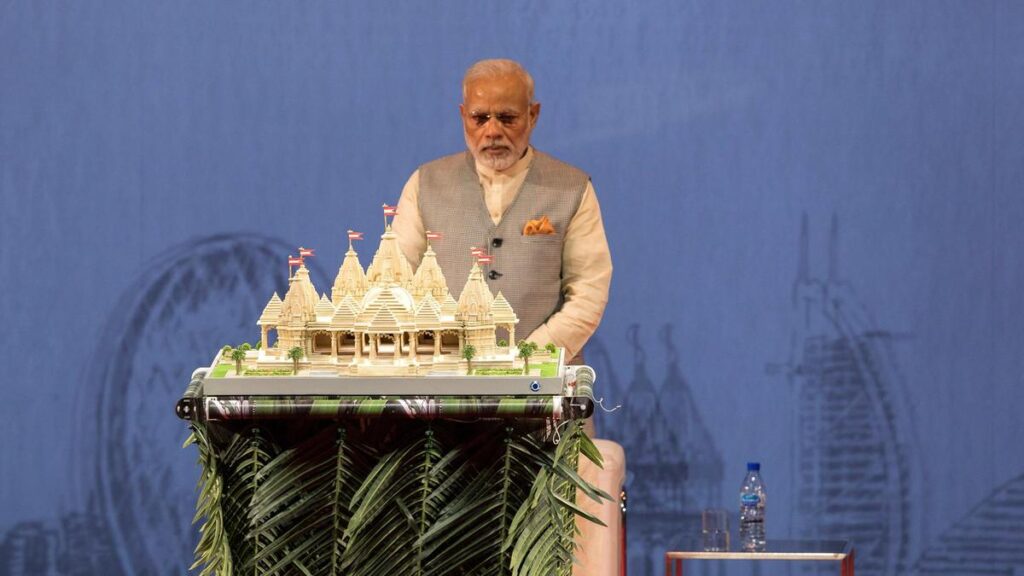
The Indian government plays an important role in supporting Hindu temples in the UAE. As a significant portion of the Hindu community in the UAE is of Indian origin, the Indian government is responsible for ensuring its citizens’ welfare and supporting their religious and cultural needs.
Here are some ways in which the Indian government supports Hindu temples in the UAE:
- Providing financial assistance: The Indian government provides financial assistance to Hindu temples in the UAE for their construction, maintenance, and renovation. The government has allocated funds for this purpose, which are administered by its missions and consulates in the UAE.
- Facilitating cultural exchange: The Indian government facilitates cultural exchange programs between India and the UAE, which help to promote Indian culture and traditions, including those associated with Hinduism. This exchange program includes events such as cultural festivals, music and dance performances, and educational programs.
- Offering consular services: The Indian government’s missions and consulates in the UAE provide consular services to Indian citizens, including assistance with matters related to the Hindu temples. This includes issuing visas for religious pilgrimages to India, providing assistance to Indian devotees visiting the temples in the UAE, and providing guidance on matters related to religious and cultural practices.
- Advocating for the rights of the Hindu community: The Indian government advocates for the rights of the Hindu community in the UAE and works with the UAE government to ensure that the community’s religious and cultural needs are met. This includes advocating for the construction and maintenance of Hindu temples, ensuring that the community’s dietary and other religious practices are respected, and protecting the community from discrimination.
Services and Activities Offered by Hindu Temples in UAE
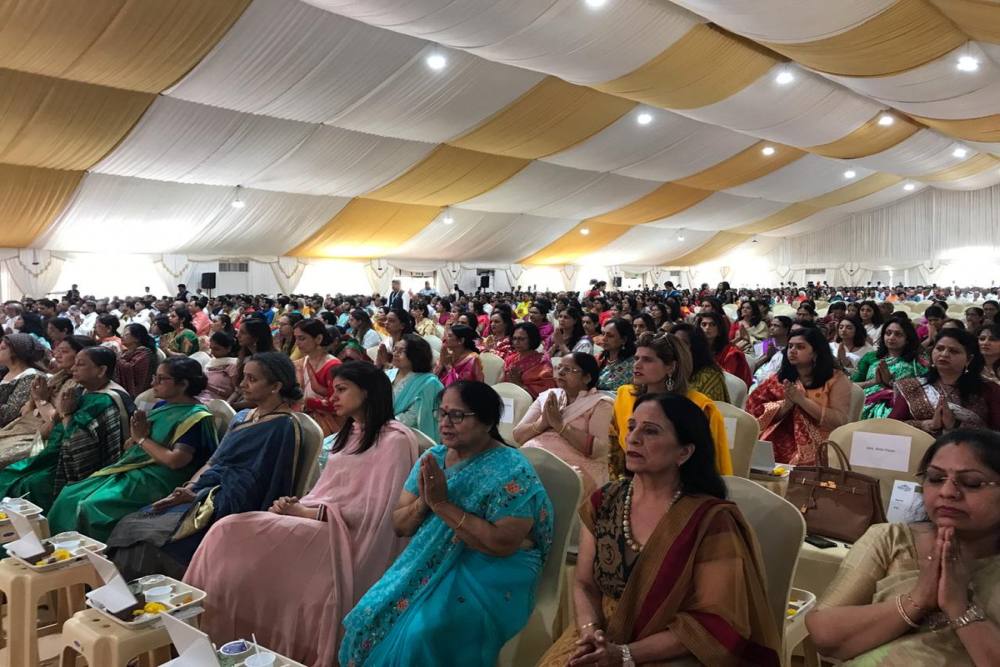
Hindu temples in the UAE offer a range of services and activities for the Hindu community living there. These services and activities are aimed at promoting spiritual, cultural, and social well-being of the community. Here are some of the services and activities offered by Hindu temples in the UAE:
- Worship Services: The primary function of Hindu temples is to provide a place of worship for the Hindu community. Hindu temples in the UAE offer daily worship services, including morning and evening aarti, special prayers, and festivals.
- Religious and Cultural Education: Hindu temples in the UAE offer religious and cultural education classes for children and adults. These classes help to promote knowledge of Hinduism, traditions, customs, and practices.
- Spiritual and Wellness Programs: Hindu temples in the UAE offer various spiritual and wellness programs such as yoga, meditation, and pranayama to promote physical and mental well-being.
- Social and Community Events: Hindu temples in the UAE organize social and community events such as cultural festivals, musical events, and lectures on Hinduism. These events help to promote community spirit and unity.
- Charitable Activities: Many Hindu temples in the UAE engage in charitable activities such as providing food and shelter to the needy, supporting educational initiatives, and offering healthcare services.
- Pilgrimage Services: Hindu temples in the UAE also offer services to facilitate religious pilgrimages to India. These services include visa assistance, travel arrangements, and guidance on important pilgrimage sites.
Future of Hindu Temples in UAE
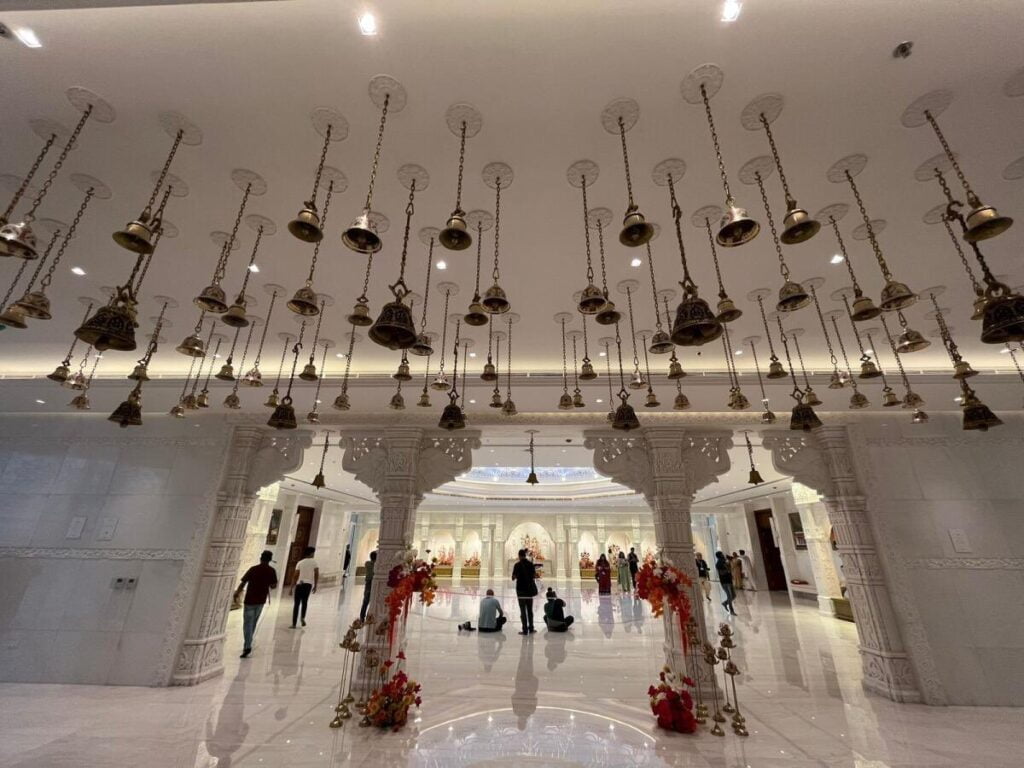
The future of Hindu temples in the UAE looks promising, as the government of the UAE has shown its commitment to religious diversity and has supported the construction and maintenance of these temples. Moreover, the Hindu community in the UAE is growing, and there is a need for more temples to meet the community’s religious and cultural needs.
Here are some potential areas of development for Hindu temples in the UAE:
- Construction of New Temples: The construction of new temples is likely to continue as the Hindu community in the UAE grows. The community’s demand for more temples is likely to increase, and the UAE government has shown its support for such projects.
- Modernization of Existing Temples: The existing temples in the UAE are likely to undergo modernization to provide better facilities and services for the community. This may include the use of technology, the introduction of new services and activities, and the enhancement of existing services.
- Strengthening Interfaith Relations: Hindu temples in the UAE can continue to play a crucial role in strengthening interfaith relations by promoting cultural exchange programs and activities that involve people from other faiths. This can help to foster a deeper understanding and appreciation of different religions and promote peace and harmony in the UAE.
- Supporting Charitable Activities: Hindu temples in the UAE can continue supporting charitable activities to benefit the community and society. These activities can include providing food, shelter, and education to the needy, supporting healthcare initiatives, and promoting environmental sustainability.
Plans for new temples and expansion of existing ones
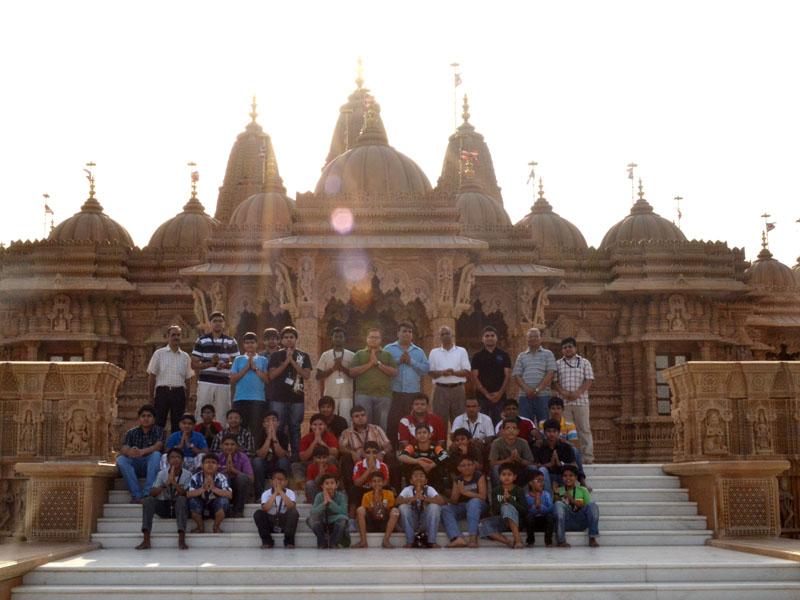
The Hindu community in the UAE is growing, and there is a need for more temples to meet the community’s religious and cultural needs. As a result, there are plans to construct new temples and expand existing ones in the UAE. Here are some of the expected plans for new temples and the expansion of existing ones:
BAPS Hindu Mandir: The BAPS Hindu Mandir is currently under construction in Abu Dhabi and is expected to be completed in 2023. The temple is being built on 13.5 acres of land and will have a built-up area of 25,000 square meters. It will be the largest Hindu temple in the UAE, with the capacity to accommodate 10,000 worshippers.
Expansion of Shiva and Krishna Temples: The Shiva and Krishna temples in Dubai are among the oldest and most popular Hindu temples in the UAE. There are plans to expand these temples to accommodate more worshippers and offer additional services and facilities.
New Temple in Sharjah: The Hindu community in Sharjah is growing, and there is a need for a new temple to cater to the community’s religious and cultural needs. The Sharjah Indian Association is currently in the process of acquiring land to construct a new temple.
New Temple in Ras Al Khaimah: The Hindu community in Ras Al Khaimah is also growing, and plans are underway to construct a new temple in the emirate. The temple is expected to be built on a 1.7-acre plot of land and will serve the local community’s needs.
Expansion of Other Temples: Other Hindu temples in the UAE, such as the Shirdi Sai Baba Temple in Dubai and the Hanuman Temple in Abu Dhabi, are also expected to undergo expansion to cater to the growing demand for religious and cultural services.
The information mentioned here is not from an official source and was collated while writing this article, and is subject to change.
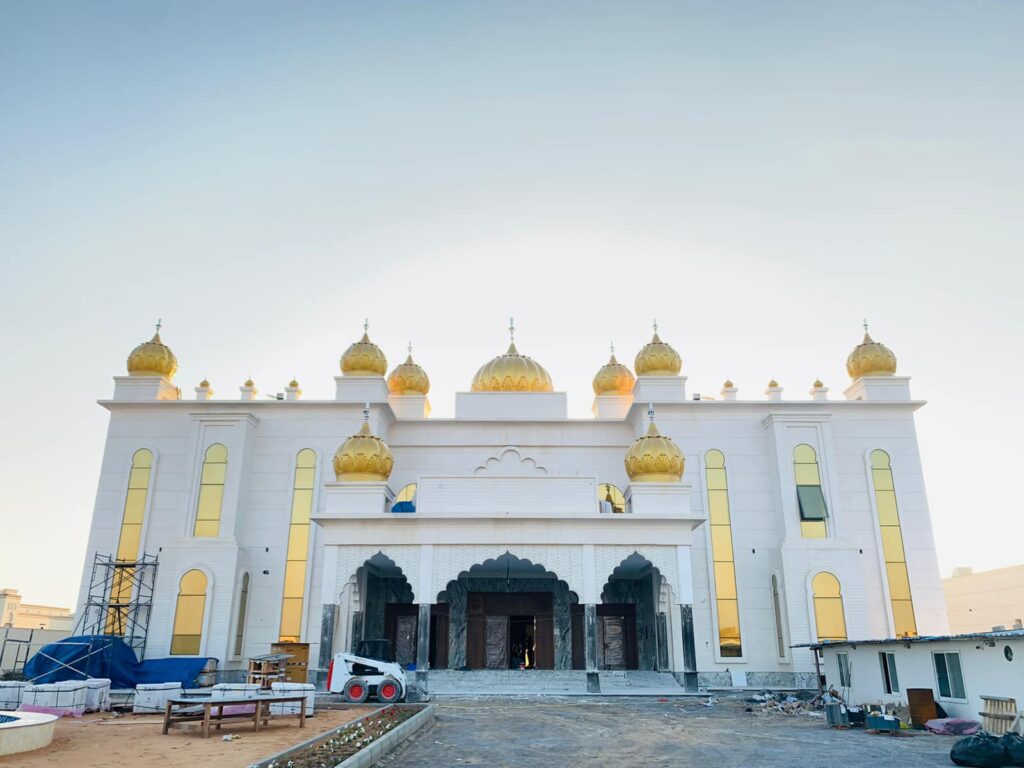
Call to action for the community to support and sustain the temples.
As the community continues to grow in the UAE, there is a need for more temples to cater to the needs of the community. Therefore, it is important for the community to come forward and support the construction of new temples and the expansion of existing ones.
There are several ways in which the community can support and sustain the temples. Here are a few suggestions:
- Donate: The temples rely on donations from the community to maintain and operate their facilities. Consider making a donation to support the upkeep of the temple and the services they offer.
- Volunteer: The temples require volunteers to assist with various tasks, such as cleaning, cooking, and organizing events. Consider volunteering your time and skills to support the temple.
- Attend events: The temples organize various cultural and religious events throughout the year. Attend these events to show your support and participate in the community.
- Spread awareness: Spread awareness about the temples and their services within the community. Encourage others to support and participate in the activities and events organized by the temples.
Conclusion
The Hindu temples in the UAE play a significant role in preserving the cultural and spiritual traditions of the Hindu community and promoting interfaith harmony in the country. These temples provide a space for worship and religious activities and serve as a hub for cultural and social events.
In this article, we have discussed the history of the Hindu temples in the UAE and the challenges faced in establishing them. We have also explored the significance of these temples for the community, including their role in preserving cultural and spiritual traditions, fostering community spirit and unity, and promoting interfaith harmony.
We have also discussed the services and activities offered by these temples, including puja services, cultural events, and educational programs. Additionally, we have highlighted the plans for constructing new temples and expanding existing ones to cater to the community’s growing needs.
It is important for the community to support and sustain these temples by donating, volunteering, attending events, and spreading awareness. The temples provide a sense of community and belonging for the Hindu community in the UAE, and their sustainability depends on the participation and support of the community.
Overall, the Hindu temples in the UAE serve as a symbol of the country’s commitment to diversity and inclusion and play a crucial role in promoting interfaith harmony and cultural exchange.




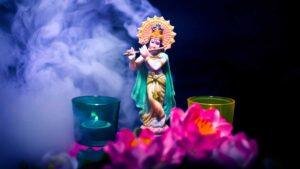
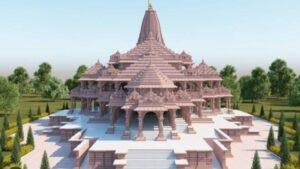

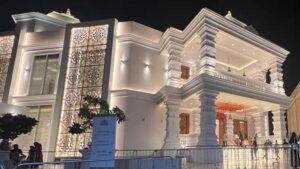











Add comment